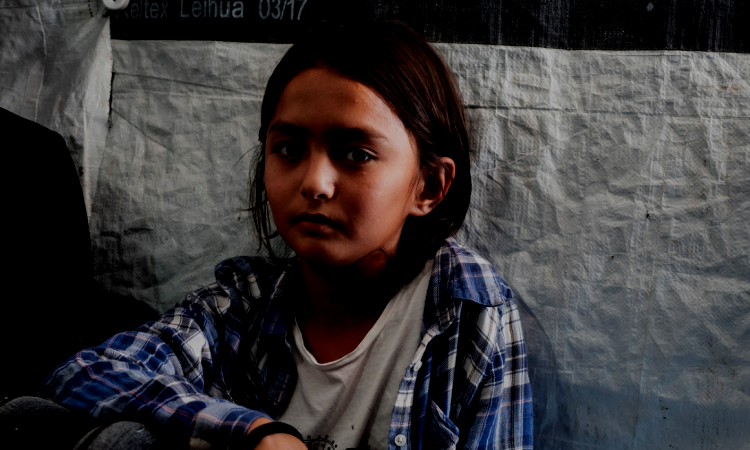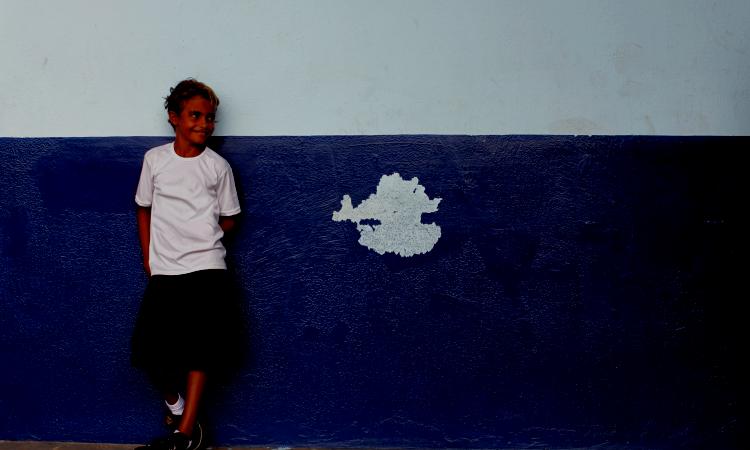Terre des hommes (Tdh) is the leading Swiss child relief agency. The Foundation has been helping children in need for over 50 years; defending their rights regardless of their race, creed or political affiliation. In over 30 countries, Tdh protects children against exploitation and violence, improves children’s and their mother’s health and provides emergency psychological and material support in humanitarian crises. In Greece, Tdh has been working through partners since 2006 and has directly provided integrated child protection and youth services (case management, shelter, MHPSS, education and life-skills, etc.) since March 2016. The overall goal of Tdh Hellas is continued interventions in Greece is to improve the protective environment for at risk children and youth and enhance their resilience.
Terre des hommes (Tdh) is the leading Swiss child relief agency. The Foundation has been helping children in need for over 50 years; defending their rights regardless of their race, creed or political affiliation. In over 30 countries, Tdh protects children against exploitation and violence, improves children’s and their mother’s health and provides emergency psychological and material support in humanitarian crises. In Greece, Tdh has been working through partners since 2006 and has directly provided integrated child protection and youth services (case management, shelter, MHPSS, education and life-skills, etc.) since March 2016. The overall goal of Tdh Hellas is continued interventions in Greece is to improve the protective environment for at risk children and youth and enhance their resilience.
Violence against children across Europe remains a significant concern, impacting children across all member states with varying severity and forms. Evidence from multiple sources suggests that various forms of violence are present in and around schools in Bulgaria, Croatia, Greece, Kosovo and Romania. While it should be acknowledged that in each national context legislative, policy and practice advancements have been made towards preventing and responding to violence against children, these measures need to be scaled up to support operationalization of integrated child protection systems with the best interest of the child at their center. Hence, building on a successful implementation of REVIS and CARING transnational projects, the current CARING 2.0: Multi-disciplinary Prevention of and Response to School-related Violence project aims contribute to strengthening and functionality of integrated child protection systems through multidisciplinary prevention of and response to school-related violence, including its gendered dimensions, and rights-based participation of children, especially these in vulnerable situations. To holistically address violence against children, concerted efforts at different layers of children’s social ecologies will be implemented through a range of mutually reinforcing methodologies, such as
- CARING Curricula for school staff and children,
- "I Support My Friends" for child-to-child support,
- Trauma-informed care training package for multi-disciplinary teams,
- as well as operationalization of inter-agency referral mechanisms at school level.
One Regional Child & Youth Advisory Board (CAB) and four national CABs will be supported and developed as a tested mechanism to ensure meaningful participation of children in decision making processes that affect their lives. Collectively, the implementation of these methodologies will provide a strong basis for disseminating best practices.
In the context of the CARING2.0 project Tdh Hellas will organize 10 trainings with youth leaders aged 13-18, enrolled in public schools, particularly those with different vulnerabilities (at risk of being economically, geographically, socially excluded, affected by migration etc.) ensuring gender balance and 10 child led initiatives in the respective schools in the municipality of Athens. In addition, 10 awareness raising sessions on school-related violence with the educators of the respective schools and 10 meetings with parents or legal guardians of the students will be organized. These terms of reference consist of the following core responsibilities for the consultant.
1. Preparation and delivery of the 10 youth leaders’ trainings on school-related violence
2. Coordination and facilitation of the 10 child lead initiatives
3. Facilitation of the 10 awareness raising sessions on school-related violence with the educators
4. Facilitation of the 10 meetings with parents and legal guardians on school-related violence
5. Preparation and delivery of a webinar on school related violence
The consultant should have a freelancer status. Applications will be assessed according to the following criteria and prioritised in the following order.
1. Experience and qualifications in preparing and delivering trainings
2. Experience and qualifications in coordinating and facilitating child led initiatives
3. Experience and qualifications in preparing and facilitating parents’ meetings
4. Knowledge and experience on School Related Violence (SRV)
5. Knowledge and experience on child protection situation in Greece
6. Degree or higher in applicable field (e.g. psychology, social work, etc.) 7. Excellent level of English, both written and spoken 8. Excellent time management and flexibility 9. Excellent communication and facilitation skills 10. Competitiveness of the rate offered
All candidates should please send the following documents to [email protected] by 30th November 2025 (please
note that CVs will be reviewed and interviewed on a rolling basis so early application before the deadline is
recommended):
A. A Cover Letter, including a quote for your daily rate (including all applicable taxes)
B. Updated CV in English
C. Publications, articles, public presentations or other evidence of experience in school-related violence and/or
youth empowerment will be an asset to the application.
Please include “CARING2.0 project”, your name and surname in the subject line of the application email.
The project started on 1st March 2025 and this TOR is expected to be completed by 28th February 2027. The indicative number of days it is anticipated to be allocated to each activity and respective deliverables are outlined.
Total 40 days Estimated date for completion of work: All the aforementioned activities are scheduled for January 2026 – January 2027. The timetable may be adjusted according to the workplan and updated in consultation with the child protection project coordinator. The curriculum/content of the trainings will be supplied by Tdh but we expect that the consultant will offer his/her experience in adjusting/improving it.


